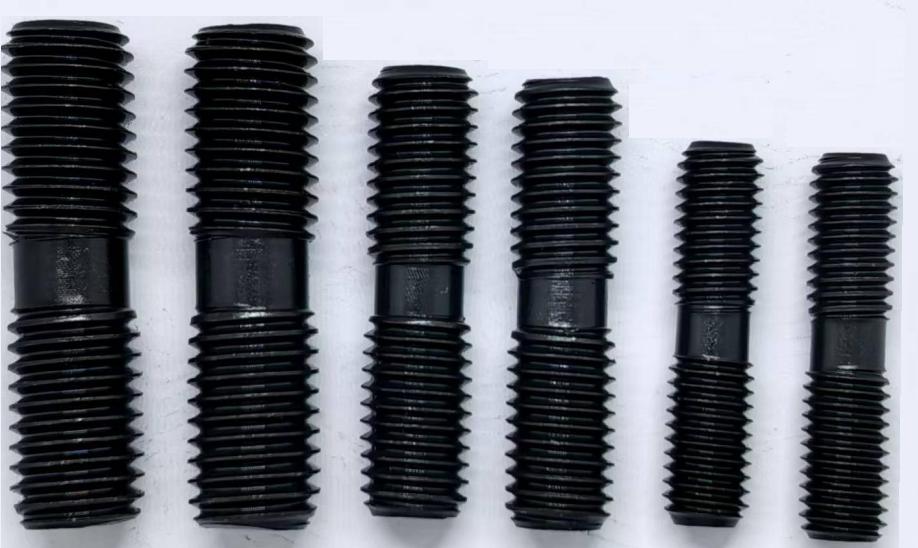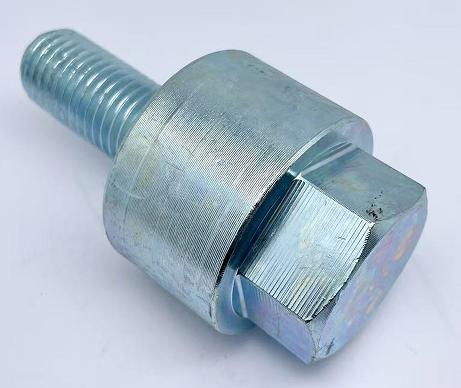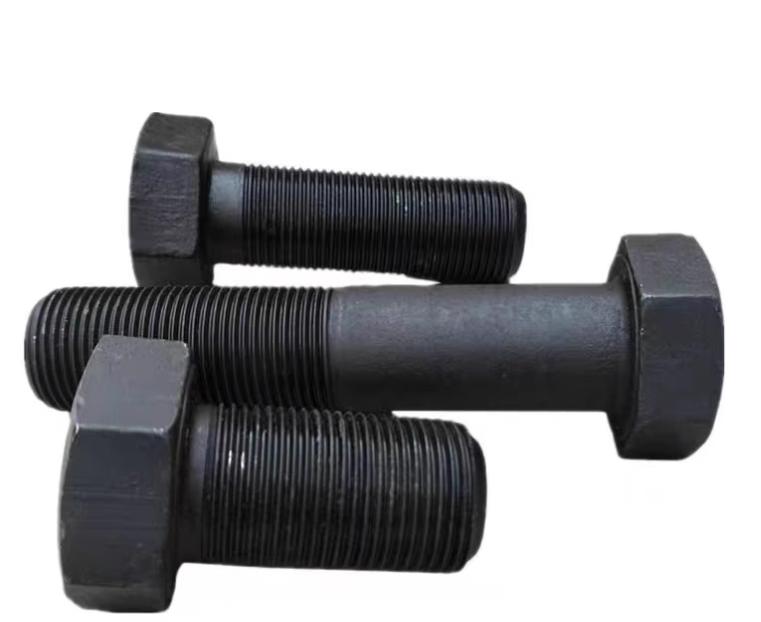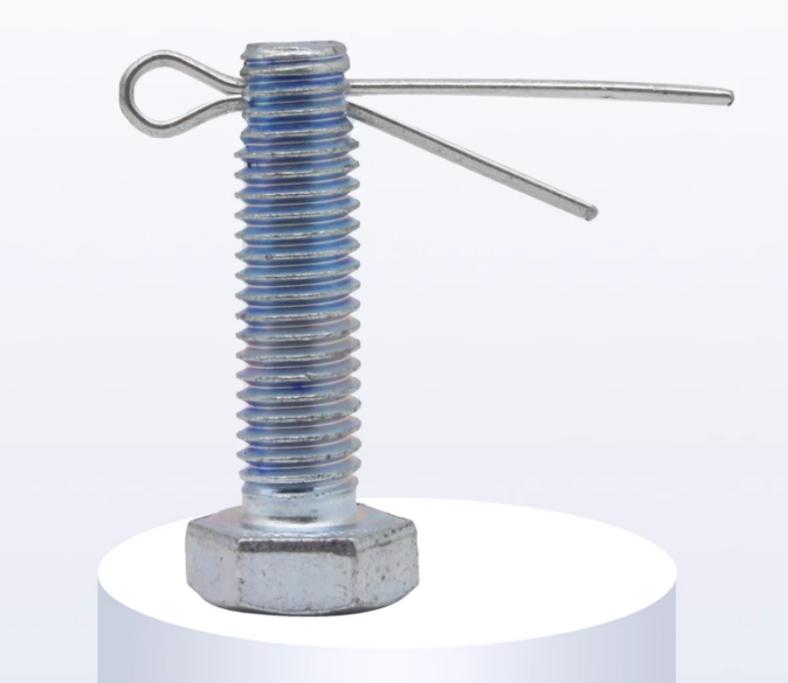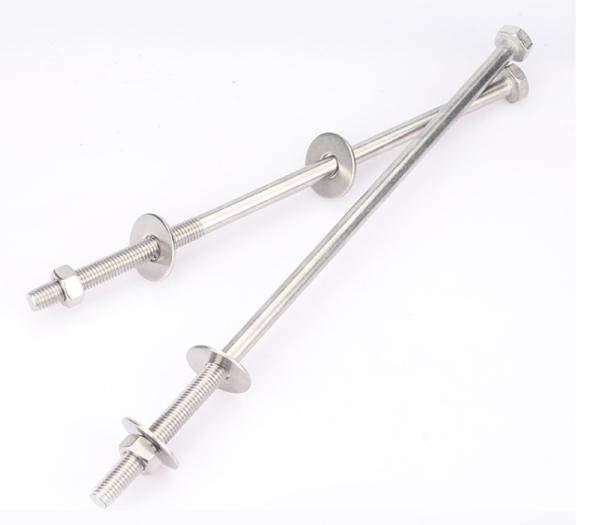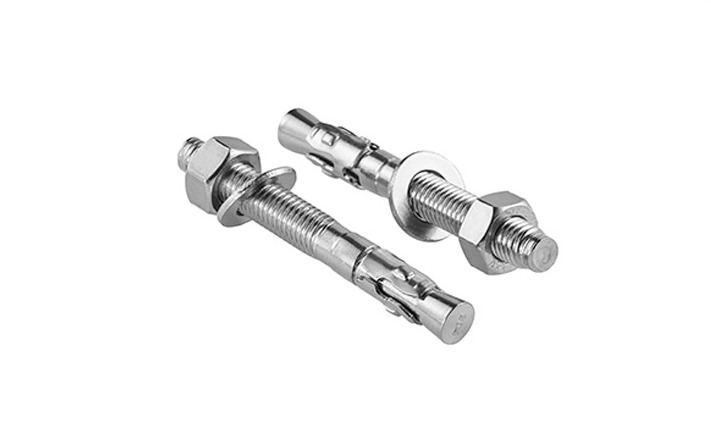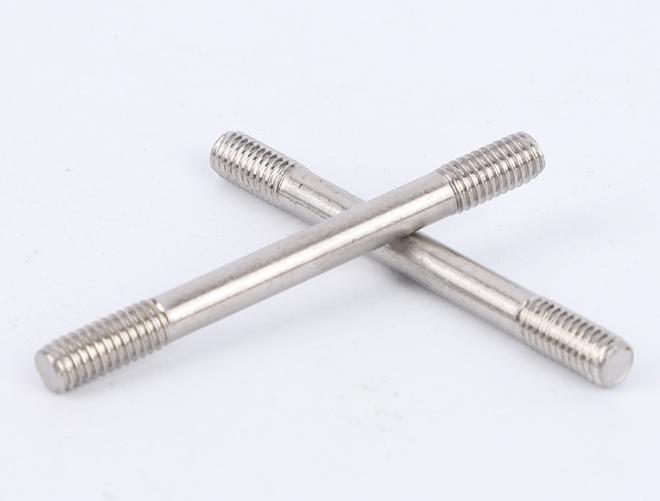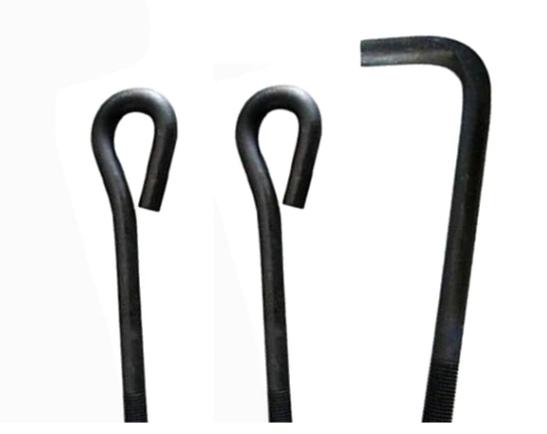Expansion vs. Chemical Anchor Bolts: Choosing the Right Type for Your Application
In engineering and construction projects, selecting the appropriate anchor bolts is crucial to ensure safety, performance and durability. One of the two popular types of anchor bolts are expansion anchor bolts and chemical anchor bolts. Although both serve the primary function of anchoring elements to masonry or concrete, their work principles, performance characteristics, and application differ greatly. Understanding these differences is vital for selecting the right anchor bolt to meet your project requirements.
Table of Contents
What are Expansion Anchor Bolts
The expansion anchor bolts are a type of mechanical fixer that are used to fix objects onto solid base materials like brick, concrete or even stone. They work by utilizing the principle of the expansion force. If the bolt gets driven or tightened into the hole, an outside sleeves (or wedge) expands, pressing into the edges of the hole, forming a solid mechanical connection that binds the anchor to the material base.

How They Work
- A hole is cut into the base material to get the appropriate size and depth.
- An anchor bolt must be put in.
- When the bolt is driven or tightened by the expansion sleeve, or wedge is pulled outward.
- This expansion makes for a snug fit because of mechanical engagement and friction.
Advantages
- Immediate Load-Bearing: The product is ready to use immediately following installation. No need to wait to cure or harden.
- Easy Installation: It doesn’t require specific tools and mixing chemicals. Most of the time, it can be done with regular tools like wrenches and drills.
- Cost-Effective: More affordable that chemical anchors notably for lighter to moderate loads.
- High Pull-Out Strength in Solid Materials: Provides a strong hold when employed in uncracked, dense concrete or solid brick.
- Variety of Types Available: There are wedge anchors, drop-in anchors with sleeves, sleeve anchors and strike anchors each one suited to specific conditions.

Limitations
Stress on Base Material:The force of expansion can cause damage or cracks particularly near edges, or on weak or thin substrates.
Not Ideal for Cracked Concrete: Holding capacity is drastically decreased in damaged or cracked base materials.
Edge and Spacing Restrictions: The concrete must be installed at least a distance from anchors and edges to avoid concrete failure.
Limited Use in Hollow Materials: Expansion mechanisms require strong base materials in order to hold securely.
Potential for Vibration Loosening:The ability to loosen may decrease over time in situations that are constantly vibrating or subject to load that is not secured properly.
Common Applications
- Construction and Building Industry:Stabilizing support structures, handrails, frames, and base plates.
- Mechanical and Electrical Installations: Installing large equipments, pipes or cable tray to concrete.
- Industrial Facilities: Anchoring machines conveyor systems, anchoring machinery as well as maintenance platforms.
- Highway and Transportation Infrastructure: Installing guardrails, signposts as well as lighting poles, to foundations of concrete.
- Warehousing and Racking Systems: Attaching pallet racks, shelves or barriers to flooring.

What are Chemical Anchor Bolts
Chemical anchor bolts serve as systems of fastening employed to anchor non-structural and structural components to brick, concrete or stone. Instead of using mechanical expansion, they attach on to their base materials by using chemical adhesives, typically epoxy vinylester, vinylester or polyester resin. They are widely employed in infrastructure, construction and large-scale engineering projects because of their capacity to bear loads and their versatility.

How They Work
- Drilling: A hole is cut into the masonry or concrete to the desired size and depth.
- Cleaning: The hole is then clean and thoroughly cleaned – typically using an air pump and brush to eliminate all dirt and dust. This is essential to ensure proper bonding.
- Injecting Resin: Two-component resin (pre-packed inside cartridges) is instilled into the hole with an applicator that is specially designed for this purpose.
- Inserting Anchor:Threaded Rod either a stud or rebar is placed into the hole filled with resin to displace the resin, making sure that it is distributed evenly.
- Curing: The material hardens for a specific time period and chemically bonds an anchor with the material base.
- Ready to Use: Once completely cured the anchor is prepared to take on loads.

Advantages
- Superior Load Capacity: Provides outstanding tensile and shear strength, which is ideal for high-load and structural applications.
- No Expansion Stress: It does not cause the pressure of radial force, making it suitable for edges or for thin substrates.
- Effective in Cracked or Weak Concrete: It can be used in low-quality or cracked concrete in which mechanical anchors could fail.
- Flexible Installation Options: The resin can be used in horizontal, vertical or overhead horizontal positions, depending on the resin type.
- Minimal Vibration Sensitivity: It is a great choice for vibrational or dynamic environments when properly dried.
- Close Spacing and Edge Distance: Anchors can be put close together and around edges without damaging the strength of the anchors or causing damage to the substrate.
- Corrosion Protection: Resin encapsulation may increase resistance to corrosion and chemical exposure.
Limitations
- Curing Time Required: Installation cannot be loaded instantly the curing process takes time based on the temperature and type of resin (from 15-20 minutes, and up to several hours).
- Installation Sensitivity: Unproperly cleaned holes, incorrect mixture of the resin or premature loading could weaken anchors.
- Temperature Sensitivity: The performance of a product can be affected by the temperature of the substrate or ambient temperature during curing.
- Higher Cost: Chemical anchors are more costly because of resin materials as well as the required accessories such as dispensers and cartridges.
- Limited Shelf Life: The resins are expiration dates and require appropriate storage conditions in order to be effective.
- Complexity: It requires trained installers and meticulous handling to ensure optimal performance.

Common Applications
- Structural Steel Connections: Anchoring steel beams, columns or base plates onto concrete foundations.
- Rebar Doweling: The joining of new concrete to existing structures by inserting reinforcement bars.
- Seismic and High-Load Environments: The ideal zone for high seismic activity or a heavy mechanical load.
- Bridge and Tunnel Construction: In infrastructure projects where performance and reliability are crucial.
- Facade and Curtain Wall Systems: Attaching frames or brackets onto concrete, without stressing concrete.
- Retrofitting and Repairs: Incorporating reinforcements or supports into older structures or during structural changes.
- Marine and Chemical Plants: Ideal for environments that are harsh and corrosive where durability over time is crucial.

Comparison of Expansion vs. Chemical Anchor Bolts
Here’s a clear chart of comparison for expansion anchor bolts and chemical anchor bolts
| Feature | Expansion Anchor Bolts | Chemical Anchor Bolts |
| Installation Method | Mechanical expansion of the wall of the hole | Adhesive bonding of resin |
| Load Transfer Mechanism | Mechanical interlock and friction | Bonding chemical between the resin and its substrate |
| Load Capacity | Moderate to high | High (especially for loads with tensile strength) |
| Edge & Spacing Distance | This requires greater edges and greater spacing | It is possible to use it closer to the edges, but with a smaller space |
| Base Material Suitability | High-quality, solid concrete or bricks and mortar | It is suitable for cracked, weak concrete, or porous |
| Curing Time | Immediate load application | Needs to be curing (from minutes to several hours) prior to loading |
| Installation Sensitivity | Not as sensitive to cleanliness or handling | Needs to be cleaned with precision and precise mixing and application |
| Performance in Vibrations/Seismic | Good (depends on the type) | Fantastic, especially when combined when combined with seismic-approved formulations. |
| Cost | Generally speaking, the cost is lower | Higher (due to resin costs and the tools) |
| Temperature Sensitivity | Minimal impact during installation | Bond strength and curing of resin can be affected by temperature |
| Corrosion Resistance | Might require further treatment | Resins are a great choice for protection that is built-in. |
| Shelf Life/Storage | Long shelf life | Shelf life is limited, and subject to storage conditions |
| Applications | A light to medium structural fixes Supports for temporary or light structural fixes | Structural fixings for heavy-duty Retrofitting Doweling rebar |
| Installation Equipment | The most basic tools (drill and wrench) | A special cartridge gun with brushes, blow-out pumps, and other accessories |

Key Factors to Consider for Choosing the Right Type Between Expansion and Chemical Anchor Bolts
The decision to choose between chemical and expansion anchor bolts must be guided by the requirements of the project, the properties of base materials and the environment. The two anchoring systems are different in the method they use to fixate and function under different stress levels, which is why it is essential to think about specific factors before deciding which one is more suitable for the task at hand.
1. Condition of the Base Material
One of the most important aspects to consider is the state of the concrete substrate. The expansion anchor bolts work by applying radial force to wall of hole. This is efficient in concrete that is strong and unbroken. However, this force can cause the destruction of weaker or less durable substrates.
However, chemical anchor bolts bind directly to concrete by using resin, which makes them perfect for porous, cracked, or old concrete, where mechanical expansion can cause structural damage. In the event that concrete is weak or weak chemical anchors can provide an extra secure and durable solution.
2. Load Requirements and Structural Demands
Knowing the type and size of the loads that anchors take on is vital to making the best choice. Expansion anchors are usually ideal for use with static or moderate loads, particularly if they are used to compress or shear in sound concrete.
For applications that involve more dynamic tensile forces, higher tensile forces, or seismic situations chemical anchor bolts offer more performance. Their bond strength and stress-free interaction with the substrate enable them to withstand more abrasive structural loads, without producing localized stress-related failures.
3. Proximity to Edges and Anchor Spacing
The physical position of the anchor with respect to the edges of the slab as well as other anchors is a important aspect to consider. Expansion anchors should be set far enough apart and away from edges in order to prevent cracks in concrete because of the force that they exert outward.
Chemical anchors can be placed closer to the edges and in smaller groups since they do not depend on force expansion. This makes chemical anchoring appropriate for retrofit installations or for working in geometries with restricted dimensions.
4. Installation Environment and Conditions
Installation conditions, including temperature, moisture and time restrictions are also factors that influence the choice of anchor. Anchors that expand offer the benefits of quick installation and instant capacity to bear loads which is especially useful in construction environments that are fast-paced.
Chemical anchors, despite require a controlled process, which includes thorough hole cleaning as well as curing time, offer greater flexibility in harsh environments. Certain resins that are used in chemical anchors work well in moist cold, very aggressive chemical conditions. These can degrade mechanical anchors’ performance.
5. Durability and Long-Term Reliability
In projects where long-term performance and environmental resistance are essential chemical anchors are generally able to provide greater endurance. They are formulated to resist corrosion, extreme temperatures, as well as exposure to chemicals.
Although expansion anchors could contain corrosion-resistant coatings, or stainless steel alternatives, their performance can be limited in harsh environments without further protection. Systems for anchoring with chemical substances, especially ones that use vinylester or epoxy resins, can maintain the structural integrity for longer durations with little maintenance.

Final Thoughts
The expansion anchor bolts and chemical anchor bolts provide reliable anchoring solutions. Expansion anchor bolts offer speed and simplicity, while chemical anchor bolts are provide unmatched strength and versatility in complex or demanding conditions. The best choice depends on your specific needs, load requirements and site constraints.

